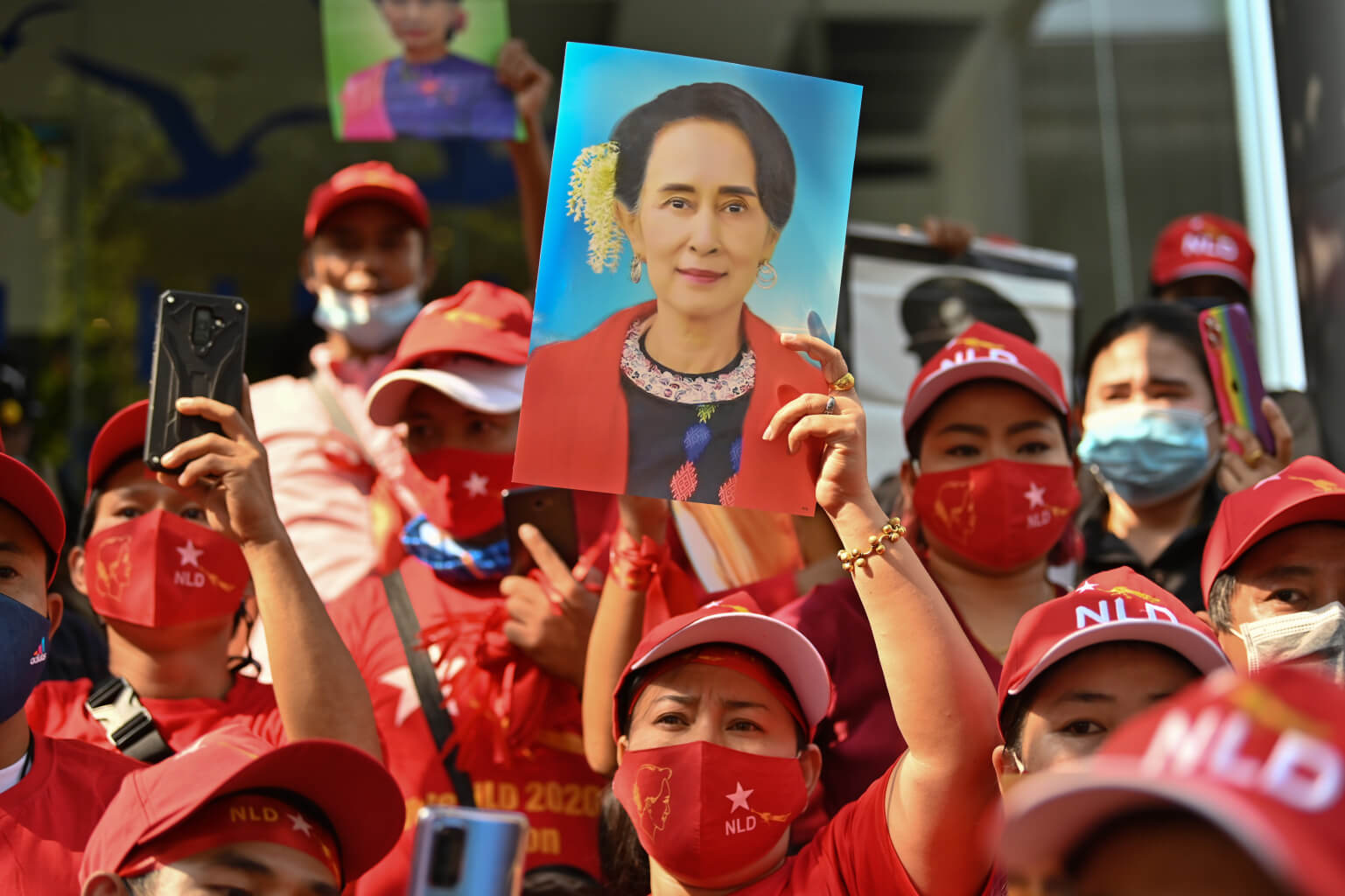The United Nations Security Council (UNSC) held an emergency meeting on the situation in Myanmar on Tuesday but failed to take any decisive action on the matter.
The Myanmar military (also known as the Tatmadaw) rounded up and detained several members of the ruling National League for Democracy (NLD) party, including State Counsellor Aung San Suu Kyi and President Win Myint in an early morning raid on Monday, following which armed forces chief Min Aung Hlaing assumed power. The Tatmadaw said the seizure of power was necessary because the government had not acted on the military’s unsubstantiated claims of fraud in November’s election, which delivered a sweeping victory in favour of the NLD. Despite international criticism, the military has said that its coup was in line with the constitution and has promised to hold new elections in one year.
While briefing the 15-member council, the UN’s envoy on Myanmar, Christine Schraner Burgener, urged the body to “collectively send a clear signal in support of democracy” in the country, stressing that it was important to ensure that it did not fall back into isolation. “Let us be clear, the recent outcome of the election was a landslide victory for the National League for Democracy. The military’s proposal to hold elections again should be discouraged,” she said, adding: “The time has passed for failed strategies promoting ‘stability’ and quiet diplomacy over accountability and justice. The military has destabilized the country irreparably. It’s now on the international community to stem the tide of military violence and impunity before it’s too late.”
Also read: Myanmar State Counsellor Aung San Suu Kyi, President Win Myint Detained in Military Coup
Though the council was expected to make a statement on the issue after its meeting, that did not happen due to some differences between a few P5 members. The body was considering a draft prepared by the United Kingdom (UK), which not only condemns the coup but also calls on the military to respect the rule of law and human rights and immediately release those unlawfully detained.
However, given that any such declaration requires the support of all council members, it did not go through. Russia and China said that they needed to send the text to their capitals for review and therefore required some time before making a decision. “I certainly hope that we’ll be able to speak with one voice,” British UN Ambassador Barbara Woodward, president of the council for February, told reporters after the meeting.
Both Moscow and Beijing have largely protected Myanmar from any significant council action since 2017 when the military launched a brutal clampdown in Rakhine against the Rohingyas. The UN has raised fears that return to military rule could worsen the plight of the more than 600,000 Rohingyas still in the country. Moving forward, though many Western nations have called the Tatmadaw’s actions a coup and are considering sanctions, it is unlikely that any UNSC measures would be triggered against the country, given that that would need a resolution, which China would most likely not support.
Chinese foreign ministry spokesman Wang Wenbin referred to Myanmar as a “friendly neighbour” on Tuesday and said that Beijing hoped that all parties “will properly handle their differences under the constitutional and legal framework and maintain political and social stability.” He also stated that any action taken by the international community should “contribute to Myanmar’s political and social stability, promote its peace and reconciliation, and avoid escalating the conflict and complicating the situation.” Wang further noted that China was disturbed that the document under consideration was leaked to the press, arguing that this “will make the process of seeking consensus even more difficult.” Meanwhile, Russia’s UN mission said that it was awaiting instructions from Moscow on how to best address the situation, noting that it was “complex and volatile.”

